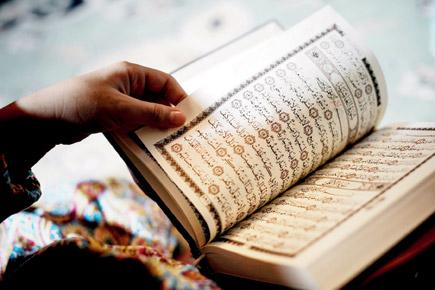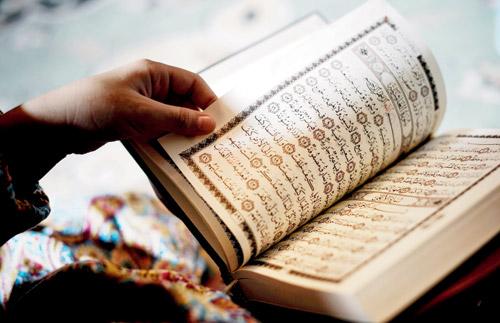The radiocarbon dating of ancient documents has identified an Islamic manuscript kept at the University of Birmingham as one of the world's oldest fragments of the holy Quran

London: The radiocarbon dating of ancient documents has identified an Islamic manuscript kept at the University of Birmingham as one of the world’s oldest fragments of the holy Quran.
ADVERTISEMENT
Radiocarbon analysis has dated the parchment on which the text is written to the period between AD 568 and 645 with 95.4 percent accuracy, the university said in a statement.
 Representational picture
Representational picture
The test, carried out in a laboratory at University of Oxford, places the leaves close to the time of the Prophet Muhammad, who is generally thought to have lived between AD 570 and 632.
“The radiocarbon dating has delivered an exciting result, which contributes significantly to our understanding of the earliest written copies of the Quran,” said Susan Worrall, director of special collections (Cadbury Research Library) at University of Birmingham.
“We are thrilled that such an important historical document is here in Birmingham, the most culturally diverse city in Britain,” Worral added.
The tests yield the strong probability that the animal from which it was taken was alive during the lifetime of the Prophet Muhammad or shortly afterwards.
Consisting of two parchment leaves, the Quran manuscript contains parts of Suras (chapters) 18 to 20, written with ink in an early form of Arabic script known as Hijazi.
For many years, the manuscript had been misbound with leaves of a similar Quran manuscript, which is datable to the late seventh century.
The manuscript is part of the University’s Mingana Collection of Middle Eastern manuscripts, held in the Cadbury Research Library.
"By separating the two leaves and analysing the parchment, we have brought to light an amazing find within the Mingana Collection," the researchers said.
According to Muslim tradition, the Prophet Muhammad received the revelations that form the Quran, the scripture of Islam, between the years AD 610 and 632, the year of his death, the university statement read.
“This means that the parts of the Quran that are written on this parchment can, with a degree of confidence, be dated to less than two decades after Muhammad’s death,” the authors said.
These portions must have been in a form that is very close to the form of the Quran read today -- supporting the view that the text has undergone little or no alteration and that it can be dated to a point very close to the time it was believed to be revealed.
“The Quran manuscript in Birmingham gives global significance to Muslim heritage and the study of Islam,” the researchers added.
The manuscript will be on public display at the Barber Institute of Fine Arts, University of Birmingham, from October 2 to October 25.
 Subscribe today by clicking the link and stay updated with the latest news!" Click here!
Subscribe today by clicking the link and stay updated with the latest news!" Click here!






